One of the overlooked issues that came out of the Mladen Miljas-Greg Cohen lawsuit was the Court’s interpretation of the Muhammad Ali. We take a look at the trial transcript on the day they examined the Ali Act as it pertained to damages.
Background of the lawsuit can be found here as well as an episode of The Legal Submission (SUBSCRIBE). The crux of the lawsuit was that Miljas sued Cohen as he failed his duties as manager and violated the Ali Act.
After the presentation of the case ended, the jury deliberated over whether Miljas had proven his case and if he did, what damages would he be entitled.
Several questions arose during deliberations regarding the Muhammad Ali Boxing Reform Act.
One of those jury instructions dealt with the Muhammad Ali Boxing Reform Act and how to assess damages.
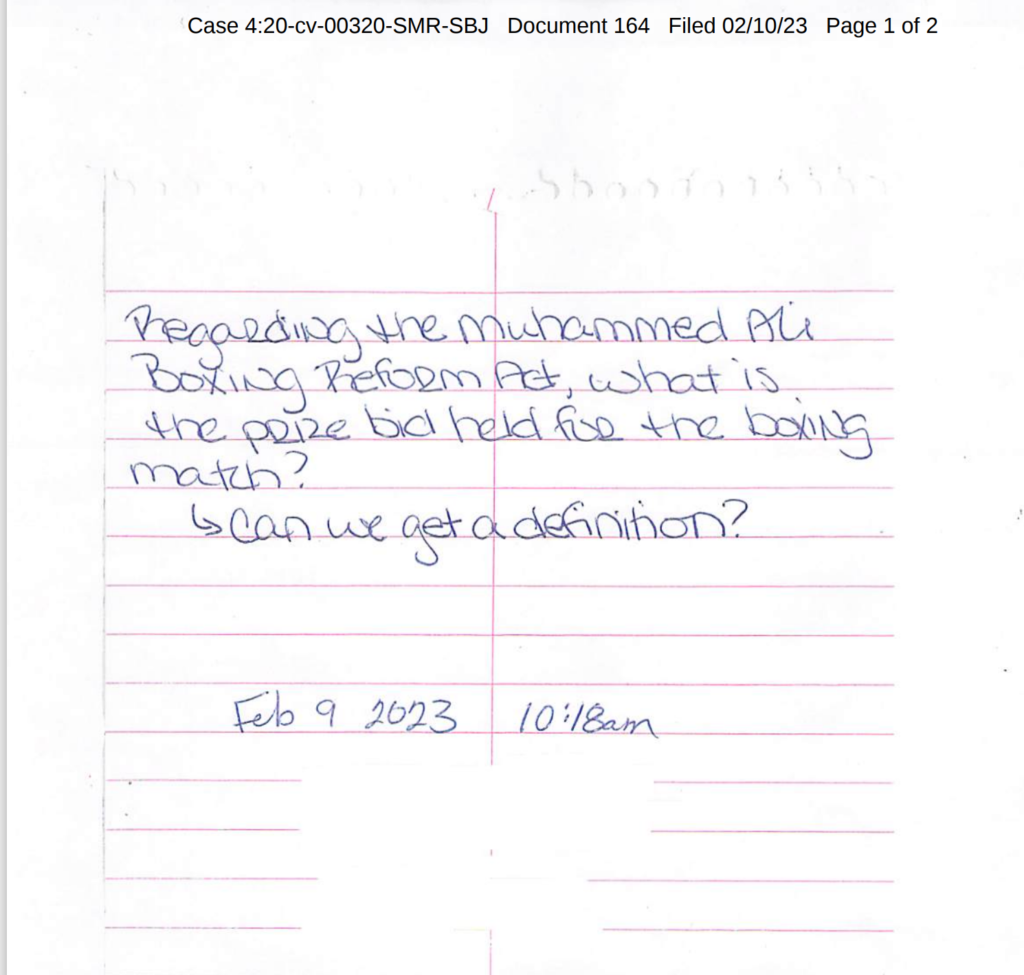
“Regarding the Muhammad Ali Boxing Reform Act, what is the prize bid held for the boxing match? Can we get a definition?” The question relates to one of the main issues in the lawsuit which was that Miljas alleged Cohen did not disclose the amount of money deducted from Miljas’ fight purse.
On the record, not in front of the jury, the Court and the attorney for Cohen and Miljas discussed if they could provide a definition. Both attorneys agreed that there was not a specific definition admitted into evidence by either party nor is there anything included in the statute or case law.
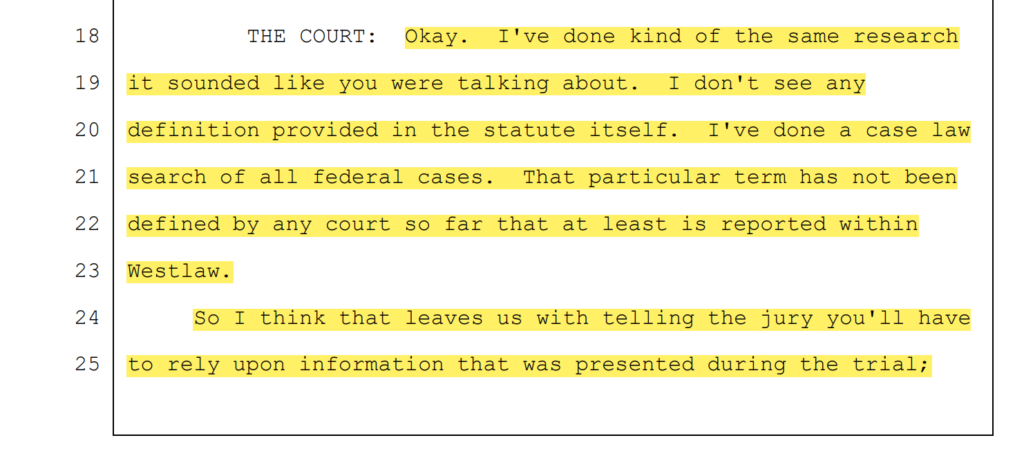
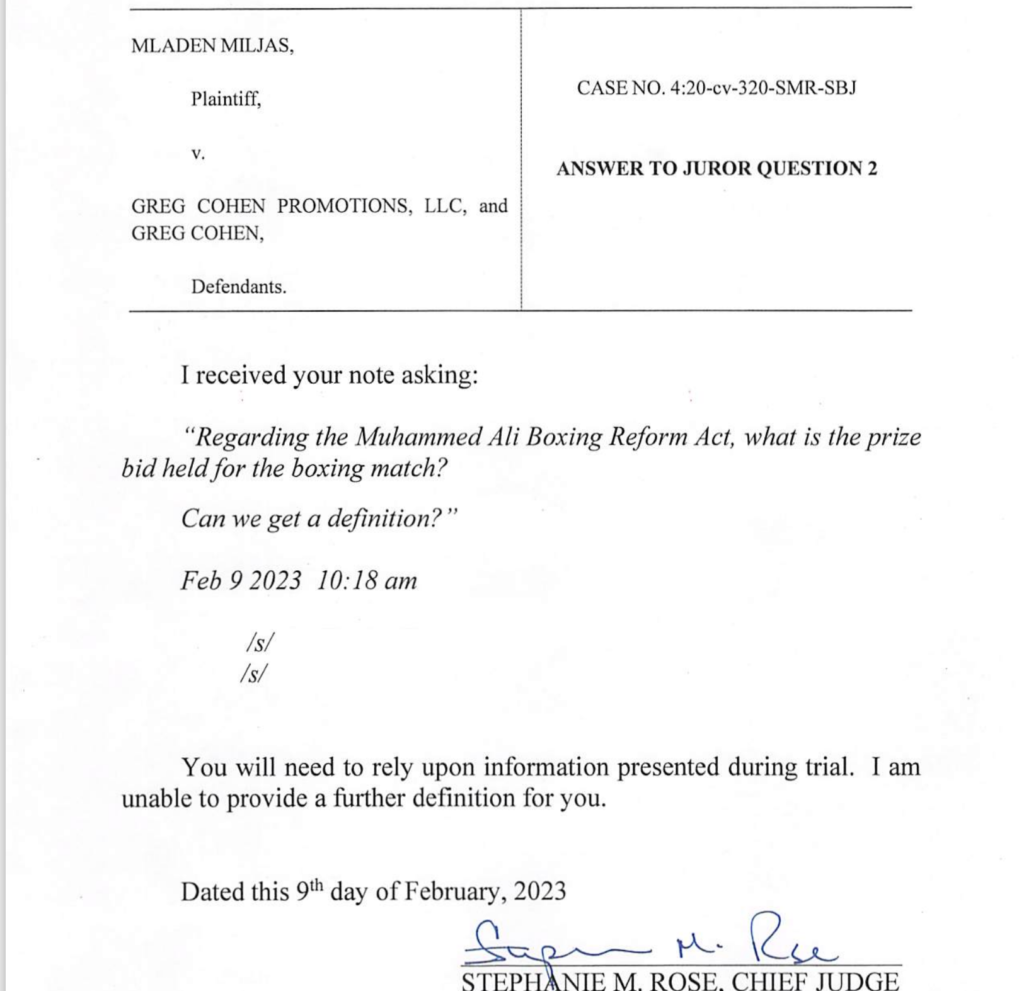
Thus, Judge Stephanie Rose could not provide a definition and required jurors to base it on information presented through trial. This is a subjective issue and may have impacted the eventual jury verdict which ended up in favor of Miljas. Notably, the jury awarded $0 for the amount of money Miljas should be awarded for his Ali Act claim. But, the jury did allow for “court costs and reasonable attorney fees and expenses.” Then then went on to award him $200,000 in punitive damages.
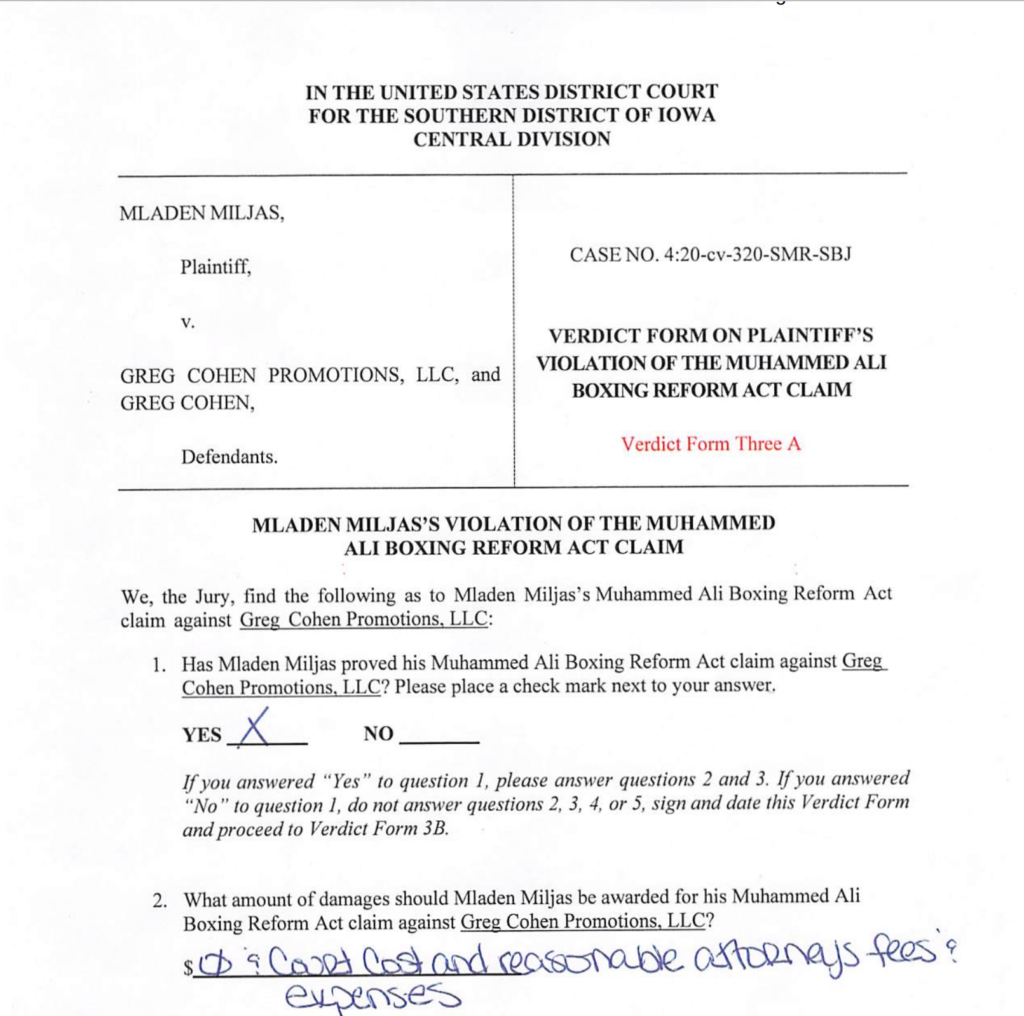
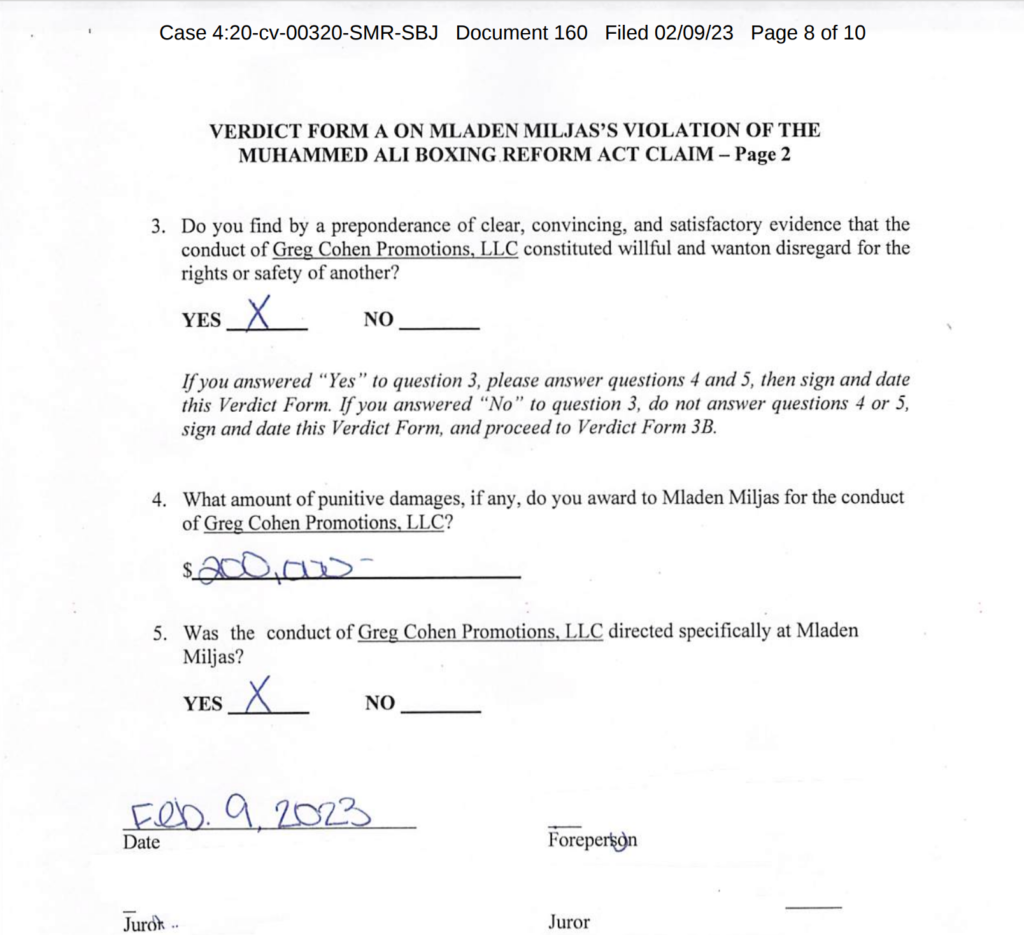
While the verdict was not appealed, a Motion for New Trial is currently pending in which Cohen’s lawyers hope to overturn the verdict.
The legal issue discussed by the Court relates to the application of the Ali Act. First, as federal law, it does not address the issue of how it may or may not prove damages. Jury Instruction are a roadmap for the jury to apply the evidence admitted into the record. It is only the evidence admitted, and nothing else, that can be admitted in the record. Secondly, not all states are subject to punitive damages. Here, Miljas was awarded $200,000 in punitive damages but in some states, that would not have happened. Also, as a general rule, there are no punitive damages in breach of contract claims. Thus, if Miljas was in a state with no punitive damages jury instructions would be different.
Which leads us to the question about the jury question above. The issue is that the Ali Act seems to be silent on what encompasses a prize bid and how it is disclosed to the boxer. While sections 13(b)(1)-(3) of the Ali Act details the substance of the information, it still is vague and does not provide definitions on the “amounts of any compensation or consideration” that a promoter has contracted to receive.” In one instance involving a lawsuit with James “Boots” Ennis, the promoter did disclose information to the boxer and submitted evidence to the court. The Ennis case settled before it went to trial.
But, based on the latest case involving the federal law, the Ali Act seems to be silent on the protocol.


Leave a Reply